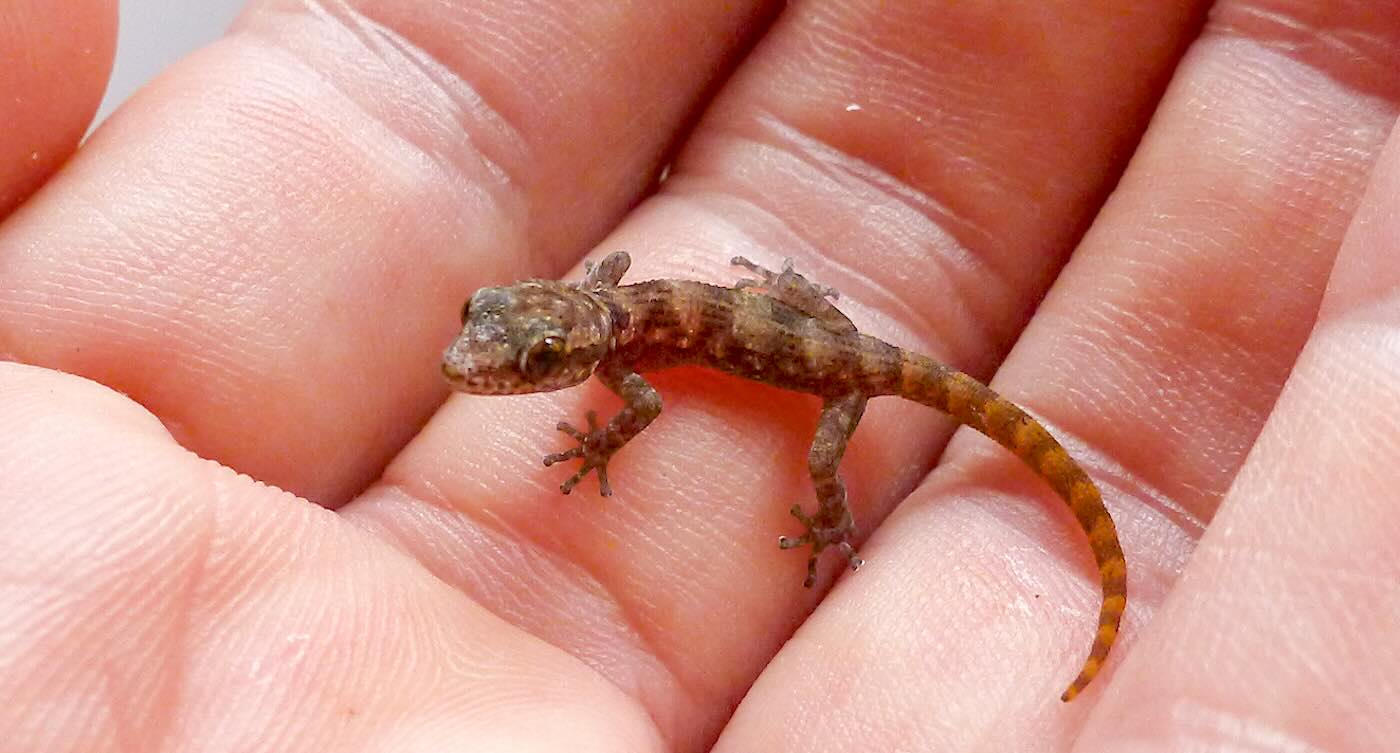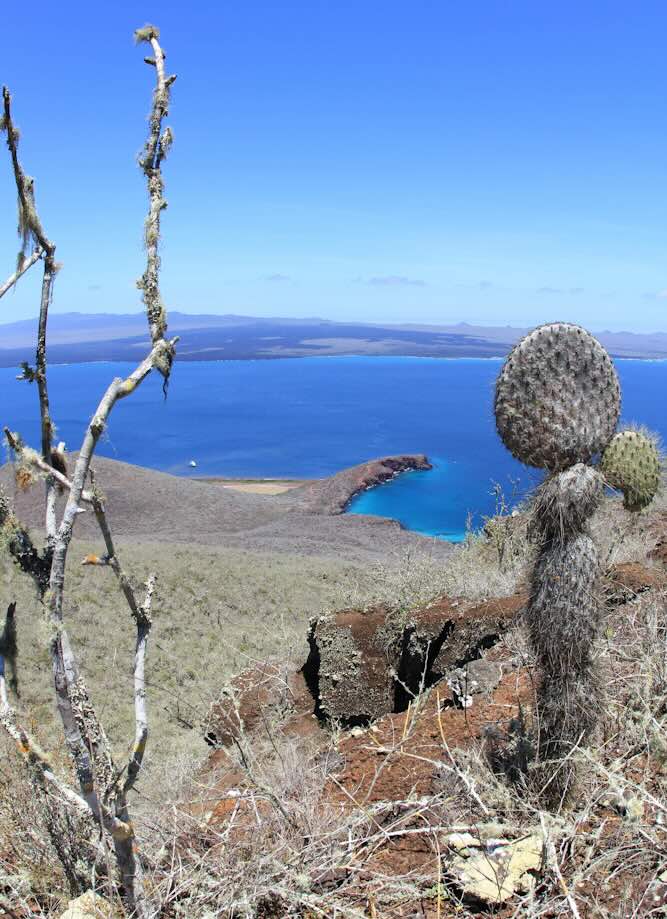 Tiny Leaf-toed gecko (Phyllodactylus maresi) – Photo credit: Island Conservation
Tiny Leaf-toed gecko (Phyllodactylus maresi) – Photo credit: Island Conservation
In a thrilling twist of ecological fate, scientists have confirmed the rediscovery of a tiny gecko species once thought extinct on Rábida Island in the Galápagos.
Thanks to a successful restoration and rewilding project, the discovery marks a major conservation milestone that shines as a beacon of hope for biodiversity recovery efforts worldwide.
The elusive Leaf-toed gecko (Phyllodactylus maresi) was previously only known to have walked the island from 5,000-year-old fossil records.
Its existence has now been officially documented through live specimens collected during expeditions by the US nonprofit Island Conservation—evidence which has been peer-reviewed and published in the journal PLOS ONE this month.
This rediscovery was made possible by a successful, bold conservation intervention in 2011 led by Island Conservation in partnership with the Galapagos National Park, Charles Darwin Foundation, and The Raptor Center.
The partners removed damaging, non-native invasive rodents from Rábida Island, paving the way for native species to bounce back—and within a year of completing the eradication, they discovered the Leaf-toed Gecko long thought extinct.
“The return of this gecko highlights nature’s incredible power to heal itself when given the chance,” said Paula Castaño, Island Conservation’s Impact Program Manager. “It’s another example of the recovery we’ve seen on islands worldwide: when you rebalance an ecosystem, it can bounce back quickly and dramatically.”
MORE GALAPAGOS GOOD NEWS:
• 500 Giant Tortoises Reintroduced to Four Galapagos Islands in 2023
• 100-Year-Old Galápagos Giant Tortoise Found on Fernandina Island is Indeed Member of ‘Extinct’ Species
 Rábida Island in Galápagos – Credit Island Conservation
Rábida Island in Galápagos – Credit Island Conservation
Researchers from Island Conservation, the QCAZ Museum of Zoology at the Pontifical Catholic University of Ecuador, Re:wild, and the Galápagos National Park Directorate used DNA sequencing and detailed morphological analysis to trace the gecko’s evolutionary roots.
The Rábida population was found to be genetically distinct, yet closely related, to Phyllodactylus maresi from nearby islands. The team designated the Rábida geckos as a unique Evolutionarily Significant Unit—which is a distinct lineage crucial for conservation.
The rediscovery not only reignites hope for other “lost” species but also deepens our understanding of island evolution and biodiversity. Islands are resilient, and when given the chance, can host surprising recovery beyond what anyone thought possible.
OTHER ERADICATION SUCCESSES:
• Island is Wonderland for Penguins Again After Dog Helps Eradicate 300,000 Invasive Rabbits
• We Finally Rid An Island of 300,000 Rats – Now Everything is Blooming
• To Save Sea Turtle Population Invasive Deer Successfully Eradicated from Island in Australia’s Great Barrier Reef
“This archipelago still holds hidden surprises, waiting to be discovered,” said Omar Torres-Carvajal, Curator of Reptiles at QCAZ Museum of Zoology.
HELP THIS STORY GET OFF THE ISLAND By Sharing The Good News on Social Media…